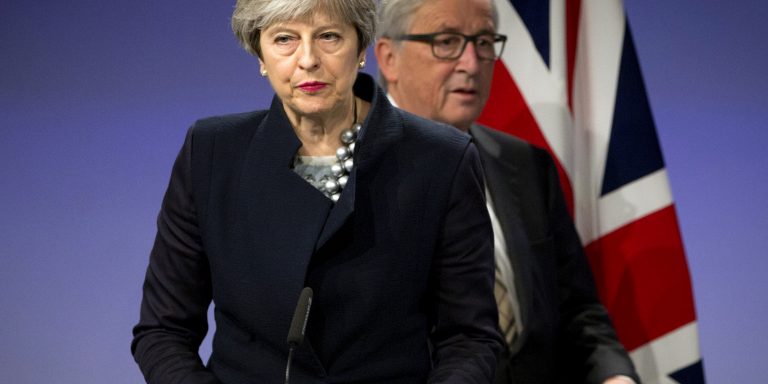INTELBRIEF
July 11, 2018
IntelBrief: The Chaos and Concern Over Brexit

- On July 9, 2018, British Foreign Minister Boris Johnson and ‘Brexit’ Minister David Davis resigned their positions in government.
- Johnson and Davis left over disagreements with Prime Minister Theresa May’s still-unspecified plans over a ‘soft Brexit’ which may or may not be politically possible.
- There has not been much in the way of concrete accomplishments in the talks between the U.K. and E.U since the June 2016 referendum over the U.K. leaving the E.U. and leading up to the March 29, 2019 deadline.
- It is unclear how the U.K. can achieve E.U. benefits without E.U. regulations.
.
‘Brexit’ chaos continues in the United Kingdom and the European Union.In June 2016, the referendum to leave the E.U. passed with a slight 52% of the vote and solidified a political and societal split in the U.K. that has only widened in the last two years. The reality of trying to leave the E.U. by the March 2019 deadline while still reaping some economic benefits of the E.U., without adhering to E.U. regulations and laws, has crippled negotiations.
The disagreements are many but can be generally classified as falling into two camps: ‘hard Brexit’ and ‘soft Brexit’. The supporters of a hard Brexit believe that the U.K. needs to simply walk away, and the E.U. will have no choice but to grant concessions on trade, immigration, travel, and finances that it consistently says it cannot for the sake of the Union. The stance of hard Brexit is that a return of full British sovereignty is worth economic and social upheaval that likely will not be as bad as predicted anyway. Soft Brexit aims to thread the eye of an impossibly narrow needle, trying to honor the results of the referendum while negotiating to keep some of the favorable terms with respect to, particularly, trade, while freeing itself from what are seen as crushing dictates and regulations from Brussels. Hard Brexit has the backing of nationalists and populists—as well as the support of Russia—while soft Brexit is seen as the least-worst scenario by large British companies and manufacturers.
On July 9, the spilt between the two widened again, with the resignations of ‘Brexit minister’ David Davis and Foreign Minister Boris Johnson, both supporters of a hard Brexit – even more so than that envisioned by Prime Minister May. It is unclear how these resignations will affect negotiations between the U.K. and the E.U. since those talks have essentially gone nowhere. The impasse is as intractable as it has been predictable; fearing a further splintering of the Union, the E.U. simply will not try to soften the exit for London by giving into some version of ‘E.U.-lite’ that might encourage others, in a time of rising nationalism, to leave.
With time running out, there is rising concern over the increasing likelihood of what was considered the worst-case scenario: a departure with no deal. Prime Minister May faces serious political opposition even as she named former Health Minister Jeremy Hunt to replace Johnson as Foreign Minister and Dominic Raab as her new ‘Brexit minister.’ She remains caught between the two implacable sides of the issue, with an E.U. that shows no sign of weakening itself to help the U.K. European Council President Donald Tusk was direct and pointed in his response to being told of the resignation of Davis. Tusk stated, ‘Politicians come and go. But the problems they have created for the people remain. The mess caused by Brexit is the biggest problem in the history of EU-UK relations. And it is still very far from being solved.’
.
For tailored research and analysis, please contact: info@thesoufancenter.org